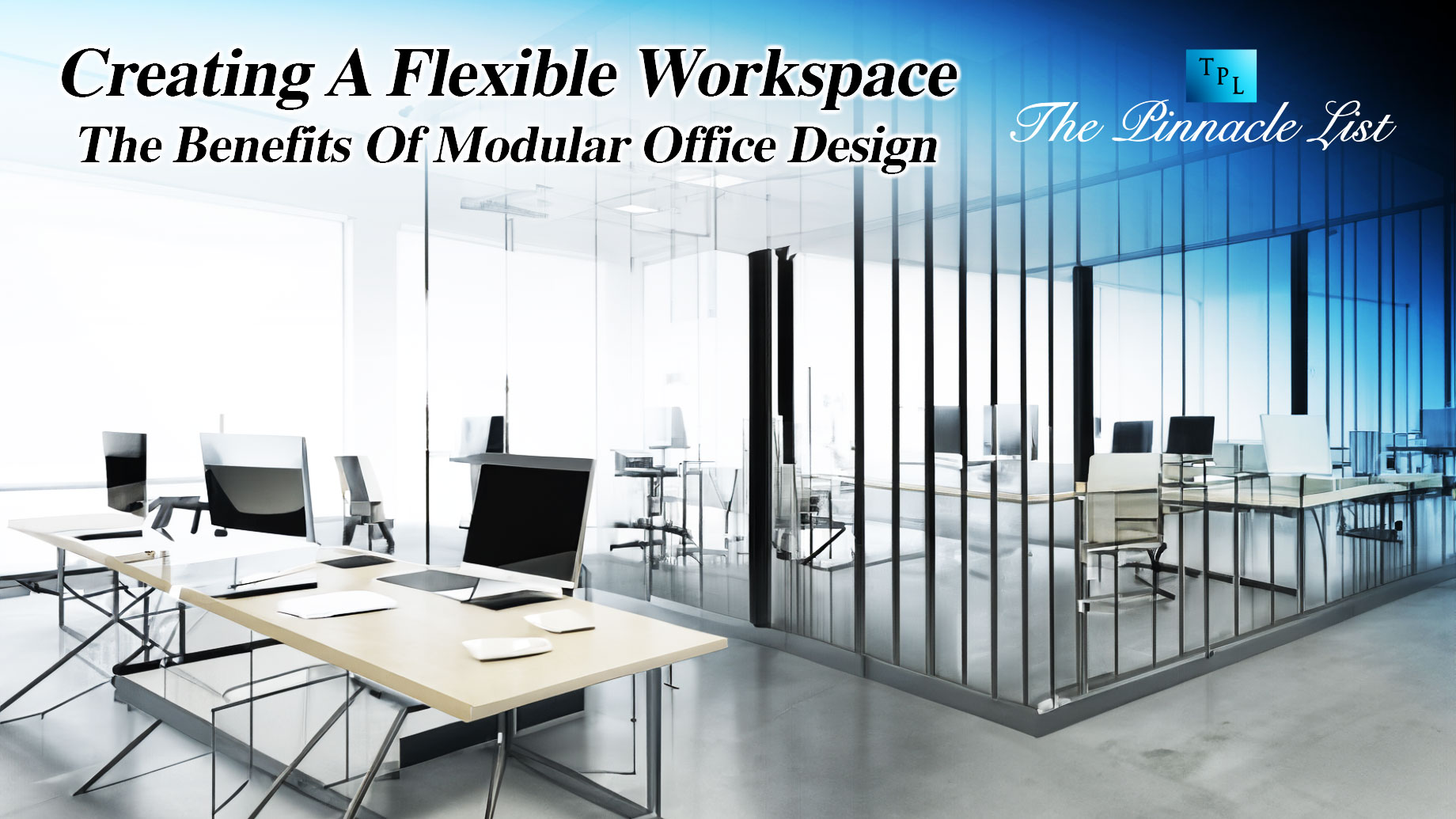
In recent years, the traditional office layout has undergone a transformative shift to meet the ever-evolving needs of modern businesses and their employees. The rigid, cubicle-laden spaces of the past are making way for more flexible and dynamic environments: the rise of modular office design. This innovative approach to workspace organization emphasizes adaptability, collaboration, and employee well-being. In this blog, we will explore the benefits of modular office design and how it can transform your workspace into a more productive and engaging environment.
Embracing Flexibility
One of the primary advantages of modular office design is its emphasis on flexibility. Traditional office setups often struggle to accommodate changing business needs and employee requirements. In contrast, a modular design allows for easy reconfiguration and adaptation of the workspace as needs evolve. Modular furniture, walls, and dividers can be rearranged to create various office layouts that suit different teams or projects. This adaptability promotes better space utilization and fosters a sense of ownership among employees who can tailor their workspace to their preferences.
Enhancing Collaboration
Collaboration is the lifeblood of innovation and productivity within a company. Modular office design fosters a collaborative environment by breaking down physical barriers and encouraging face-to-face interactions among team members. Open-plan workstations, shared project spaces, and huddle areas all contribute to the seamless exchange of ideas and information. As employees work closer together, they develop stronger bonds, leading to improved teamwork and a more vibrant company culture.
Boosting Creativity and Innovation
A modular office design can inspire creativity and innovation by providing employees with a dynamic and stimulating environment. Instead of being confined to a static desk all day, workers can move to different spaces within the office to match the task at hand. For instance, employees can use collaborative spaces for brainstorming sessions, quiet corners for focused work, or relaxation areas for a mental break. This variety prevents monotony and fosters fresh perspectives, leading to more innovative ideas and problem-solving approaches.
Adapting to Remote Work and Hybrid Models
The COVID-19 pandemic accelerated the adoption of remote work and hybrid work models. As a result, companies need to design offices that cater to both in-house and remote employees. Modular office design aligns perfectly with this demand for flexibility. The workspace can be adapted to support both in-person collaboration and virtual interactions through the integration of video conferencing technology, shared digital whiteboards, and hybrid-friendly meeting rooms. By ensuring the office accommodates remote work, businesses can maintain team cohesion and productivity, regardless of their employees’ physical location.
Prioritizing Employee Well-Being
Employee well-being is paramount to organizational success. Traditional office layouts, with their rigid structure and lack of natural elements, can contribute to stress and burnout. Modular office design places a strong emphasis on creating a healthy and pleasant work environment. Integrating biophilic elements, such as plants and natural lighting, can improve air quality and elevate employees’ mood. Additionally, providing comfortable and ergonomic furniture helps reduce physical strain and discomfort, resulting in higher job satisfaction and increased productivity.
Cost-Effective and Sustainable
Modular office design can be cost-effective compared to traditional fixed setups. Its adaptability means that companies do not need to invest in new furniture or undertake major renovations when reorganizing the workspace. The modular approach allows for gradual adjustments based on the company’s needs, preventing unnecessary expenses. Moreover, many modular components are designed with sustainability in mind, using eco-friendly materials and promoting reusability. As companies strive to be more environmentally responsible, modular office design aligns with their sustainability goals.
Future-Proofing the Workspace
The business landscape is continuously evolving, and companies must stay ahead of the curve to remain competitive. A modular office design future-proofs the workspace by providing an agile and scalable environment that can quickly adapt to emerging trends. Whether it’s accommodating new technologies, expanding the team, or integrating new departments, a modular approach ensures that the workspace can evolve with the organization’s changing requirements.
The traditional office model is giving way to a more flexible and employee-centric approach through modular office design. Emphasizing adaptability, collaboration, and well-being, this innovative approach redefines the workspace, making it a dynamic hub for creativity and productivity. By embracing modular office design, businesses can foster a culture of innovation, enhance collaboration, and future-proof their workspace in an ever-changing world. As the workforce evolves, investing in a flexible office design is not just an option but a strategic imperative for success.